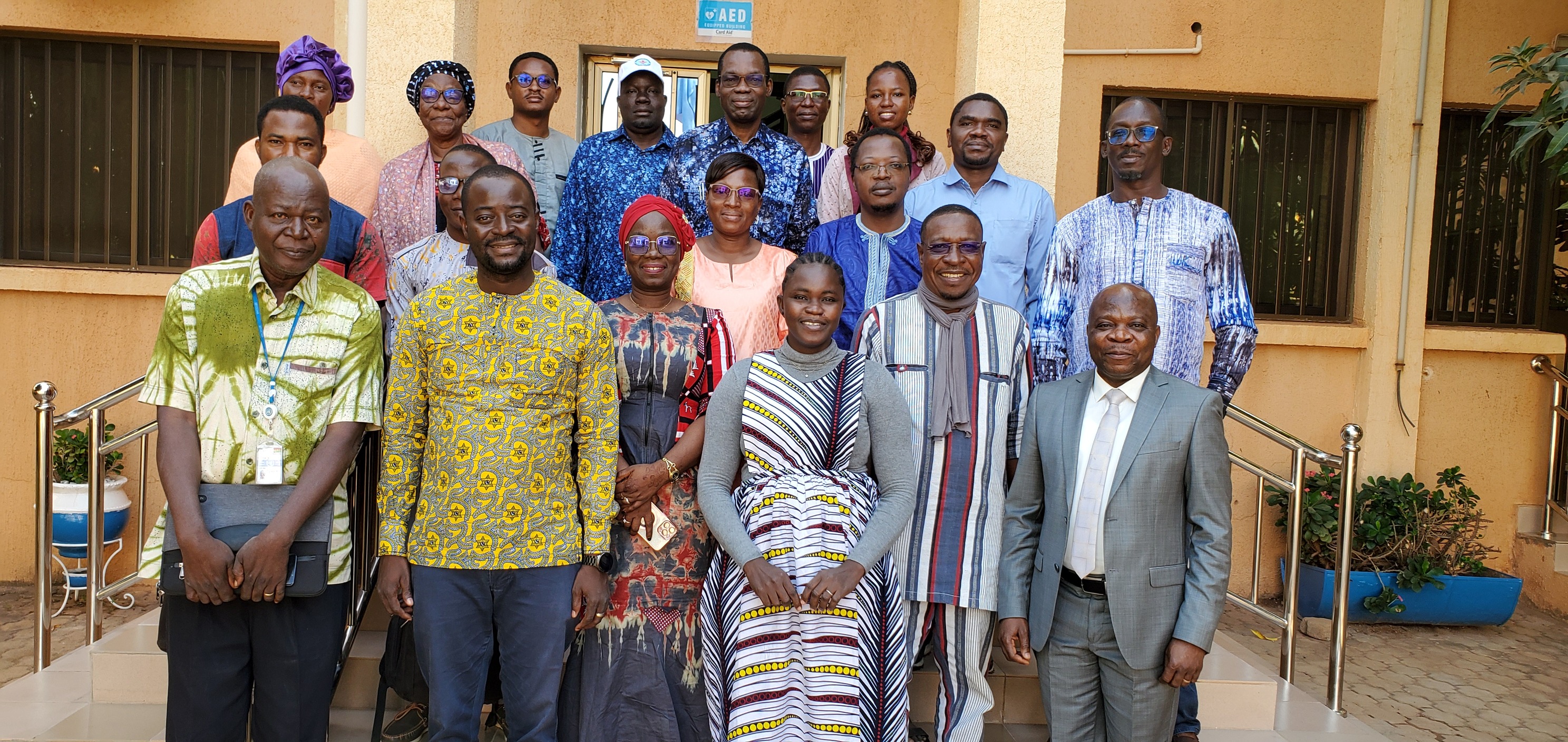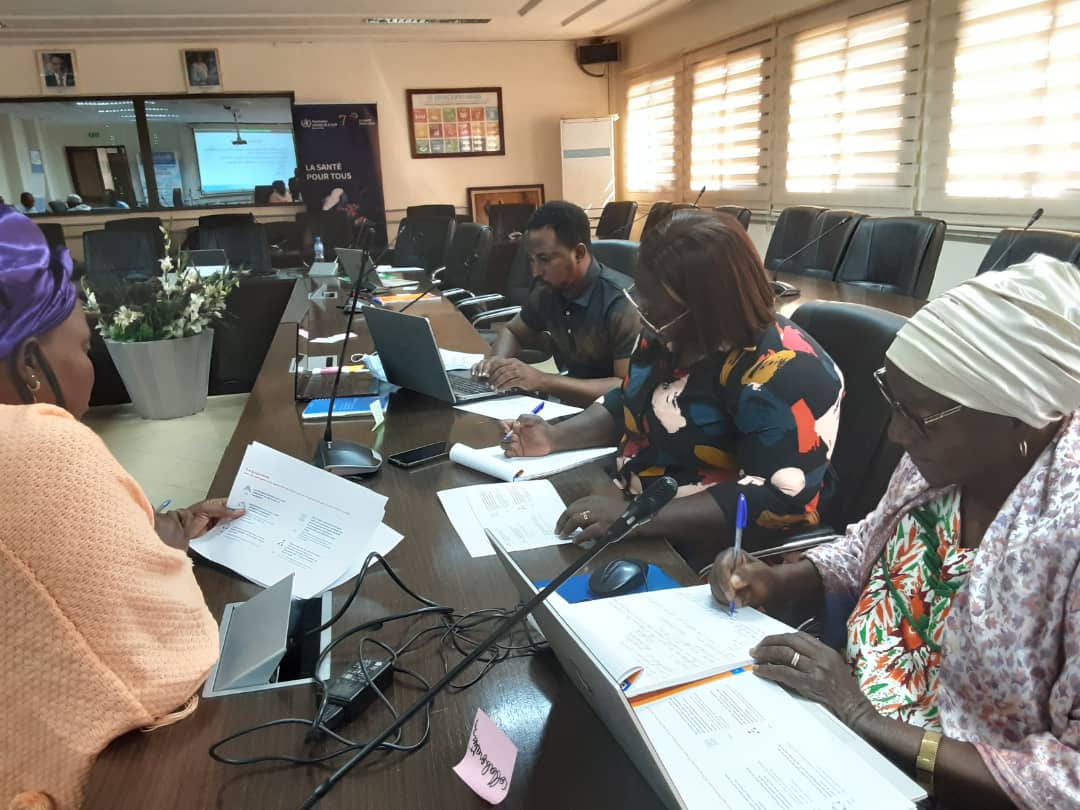The Health Cluster and the WHO Country Office in Burkina Faso, with technical support from the Global Health Cluster (GHC), organized a workshop in Ouagadougou from 7 to 9 November to develop a localization action plan as part of the GHC localization strategy. Close to thirty participants, including local and national actors from different regions of Burkina Faso, civil society, the Ministry of Health, and local and national NGOs, collaboratively drafted a preliminary outline of strategic priorities to strengthen the leadership, participation, and representation of these actors in the Health Cluster.
 Photo: © WHO Burkina Faso
Photo: © WHO Burkina Faso
Initially, participants engaged in exchanges, capacity building, and sharing on key topics such as humanitarian architecture, protection, and the roles of the Health Cluster. They were then introduced to localization concepts, the GHC’s localization strategy, and local localization initiatives in Burkina Faso (SPONG, OCHA, local NGOs, Health Cluster). Experiences from health clusters in Chad and Ukraine were also shared.
Building on this conceptual foundation and these shared experiences, participants identified the main localization challenges in Burkina Faso, including networking, capacity, and trust constraints. They proposed measures to mitigate these obstacles and formulated priority recommendations, along with a monitoring framework to advance the localization agenda within the Burkina Faso Health Cluster.

Photo: ©Health Cluster/Burkina Faso
The participants' recommendations include capacity building for local and national actors in management, reporting, and resource mobilization through regular workshops and consultations while promoting co-coordination within the Health Cluster. They also recommended mapping and assessing local actors' capacities to select co-coordinators and direct access to funding, particularly for local health initiatives and consortia. Additionally, actions to increase the visibility of local actors through online platforms and the integration of their activities into communication tools were proposed to enhance their active representation in the cluster's decision-making bodies.
The Burkina Faso Health Cluster, with technical support from the GHC, will now consolidate this action plan for adoption by the participants and fifty partners of the Health Cluster in Burkina Faso. The plan's implementation is primarily scheduled for 2025.
Thanks to the enthusiasm, dynamism, and expertise of local and national actors, complemented by international actors, the Burkina Faso Health Cluster is a pioneer in implementing the GHC's localization strategy. Several other countries will initiate a similar planning process in the coming months, with support from the GHC.
